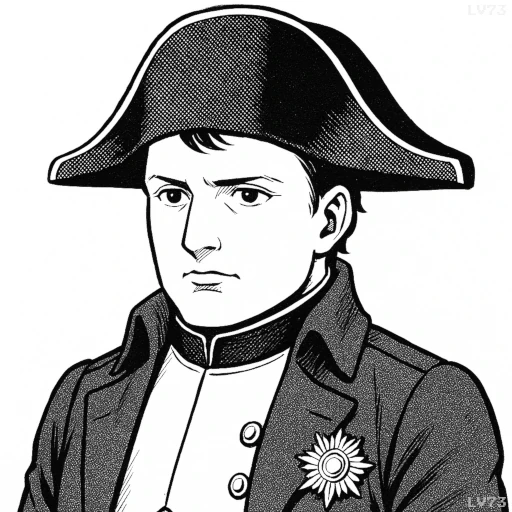“A revolution can be neither made nor stopped. The only thing that can be done is for one of several of its children to give it a direction by dint of victories.”

- August 15, 1769 – May 5, 1821
- French of Italian descent
- French military officer and emperor
table of contents
Quote
“A revolution can be neither made nor stopped. The only thing that can be done is for one of several of its children to give it a direction by dint of victories.”
Explanation
In this statement, Napoleon Bonaparte reflects on the uncontrollable and organic nature of revolution. He suggests that revolutions arise from powerful societal forces that cannot be artificially created or entirely halted; they are driven by deep-seated desires for change that emerge from the collective will of the people. Once a revolution begins, it takes on a life of its own, impossible to fully direct or contain. However, Napoleon argues that a revolution can be guided or given direction by leaders within it, who can shape its course through decisive victories and effective leadership, thus channeling its energy toward specific goals.
This insight applies to movements and transformations of all kinds, whether political, social, or cultural. While revolutions often start with broad, diffuse aims, strong leaders who earn the people’s trust and achieve notable successes can help to steer these movements in productive directions. For example, historical figures like George Washington and Mahatma Gandhi influenced the paths of their respective movements by embodying their principles and securing pivotal victories, giving coherence and purpose to the larger revolutionary effort.
Napoleon’s perspective encourages us to recognize both the power and unpredictability of collective change. It highlights the importance of leadership within movements and the impact of strategic victories in shaping long-term outcomes. By understanding that revolutions cannot be forced or easily stopped, leaders can focus on harnessing their momentum responsibly, guiding the transformative energy toward goals that reflect the aspirations of those involved. This approach underscores the need for visionary leadership that can align a movement’s direction with its core ideals and aspirations, helping to bring about meaningful and lasting change.
Would you like to share your impressions or related stories about this quote in the comments section?



